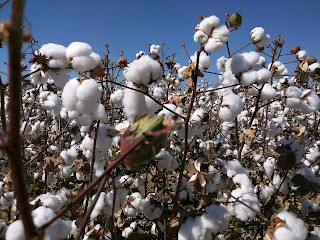Mississippi has very hot summer days. Moving from cool rainy Seattle to sweltering heat made our first summer here almost unbearable for me. The kids and I arrived ready to start our Mississippi lives right smack in the hottest days of summer in 2014. To add to our discomfort, the AC in our rental home was broken.... lol, I can laugh about it now ;)!
Since I mention the first summer, I might as well talk a little bit about the first winter. It wasn't until around the second week in January that I went looking for the box our heavy winter coats were packed in. The ladies at Maple Street charity quilting would comment in wonder how I could still be wearing short pants and sleeveless shirts well into December... That was the first year...
But with such a drastic change in temperature, getting acclimated happens quickly! The next summer, though it still required living mostly indoors with AC, was much more bearable. And this year I saw more of the outdoors and even enjoyed working in the yard early in the mornings (but also experienced more of the blood sucking insects that summer brings :(... not a pleasant experience at all!! I did considered getting stock in Deep Woods insect repellent spray!)
It's mid November now and the cool mornings have us putting an extra layer of clothing on. I think we are fully acclimated to Mississippi weather, lol :).
But back to the cotton.
Despite the heat, Mississippi summer days are gorgeous!! I love that beautiful blue sky in all my pics. The clouds on this day seemed to have been provided just for us. A perfect field of fluffy clouds to go with the field of fluffy white cotton.
In my previous blog post, Cotton Education...: the fields, I tried to express how very fortunate I have been to meet some wonderful women through quilting. It's amazing that with all the diverse lifestyles we connect through our love of quilting. I am truly blessed to have found such a wonderful group.
Julia Graber graciously continued our cotton education. I got a text one morning that she had a cousin visiting from WA for a week. That even though the fields weren't quite ready yet, she was taking her cousins out to the fields to show how they pick the cotton, and wanted to invite me and Karen along.
 |
| The ideal spacing for cotton is 30 inches apart. These fields are planted in skip rows, meaning 2 rows together then a space. I think it's for a higher yield and maybe easier maintaining. |
By the time I arrived at the field the cousins were already taking a ride. The combines are quite impressive machines.
A module is finished and ready to drop off the back side.
It's already started the next module.
.....and MASSIVE!
 |
| I'm already two ladder steps up. When I stand on the ground the tires stand higher than my head! |
 |
| LOL, I was just like a little girl, I saw more ladders and I had to climb all the way to the top :). Julia's son explained all the workings. How the cotton is picked. How the combine senses how much and wraps each bale. How the bale is rolled up and dropped out the back. That the yellow wrapper cost about $35 each so they make sure to make full bales. He answered question after question. I'm sorry, I don't remember much of the technical information. My emotions were in overdrive. I'm not sure why... I hadn't wanted to ride the combine, rather was happy with just watching it work. But Julia persisted and convinced me to experience it. I am so grateful she insisted <3!! Thank goodness for google :)... National Cotton Council of America has a great page of Frequently asked questions! The combine is a two seater...  ...Karen and I had to balance ourselves and snuggle on the passenger seat. |
 |
| Looking down from inside the combine. The combine was adjusted for the row spacing. It's so perfectly aligned! |




















